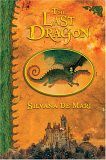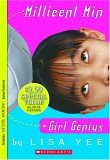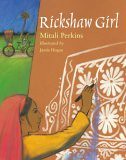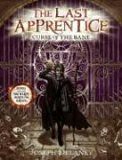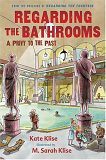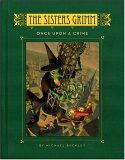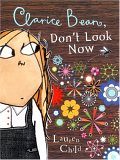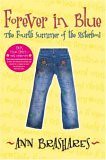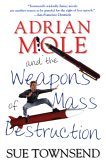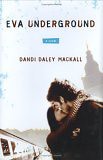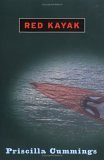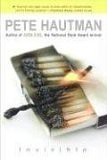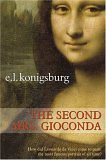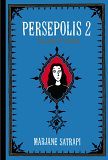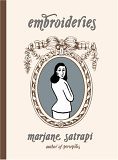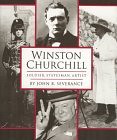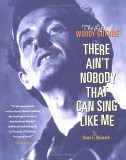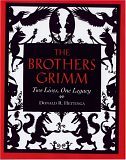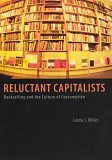Hey dudes!
Check out these recent book-related posts I have over at Geek Buffet:
Harry Potter and the BIG FAT SECRET, pt II
Judging People by Their Covers
More book reviews this week, I promise.
Tuesday, May 29, 2007
Friday, May 25, 2007
In an effort to be more on top of things, instead of always worrying about my backlog of things that need to be reviewed, I'm going to try and get books reviewed as I read them and THEN worry about the backlog. If that makes sense.
So, here's the book I just finished reading last night.
The Last Dragon by Silvana de Mari, translated from the Italian by Shaun Whiteside
Yorshkrunsquarkljolnerstri is the last elf. All the others had been sent to elf-camps, where they starved and froze to death. When the rains came, the remaining elves drowned in the floods. Yorsh's grandmother told him to go. Go, and don't look back.
Navigating a world that hates elves, Yorsh meets two human travelers who protect him, even though it brings them nothing but trouble. While escaping from jail, Yorsh sees a prophesy on a wall and knows it is about him.
Sarja and Monser (the humans) leave Yorsh to care for a dying dragon.
Years later, he and his dragon brother go to fulfill the prophesy...
There's more to it than that, but there is a huge gap in time between the first and second halves of this book and to fully explain the last bit, I'd have to completely ruin the first bit, and we don't want that, do we?
This is the type of story that sounds mundane and hackneyed. Elves. Dragons. Prophesy. Evil Kingdoms. Yawn. But in the hands of de Mari, this is a new, original tale that captivates you. There is a rhythm and lyricism to the prose that is hard to capture in just a single quotation. Yorsh is a wonderful character and even though the book is titled The Last Dragon, it is really Yorsh's tale.
This was a Batchelder honor book this year. The Batchelder is the prize ALA gives for translated works, but for some reason, instead of going to the author or translator, it goes to the publisher. What's up with that?!
This book also made the Cybil's short list!
Other Blog Reviews: Oz and Ends, Rebecca Hogue Wojahn, Becky's Book Reviews, Fairrosa's Reading Journal
Not all the blog reviews are positive. Also, there's a movie with the same name, so it was hard to wade through. I'm sorry if I ever miss anyone...
So, here's the book I just finished reading last night.
The Last Dragon by Silvana de Mari, translated from the Italian by Shaun Whiteside
Yorshkrunsquarkljolnerstri is the last elf. All the others had been sent to elf-camps, where they starved and froze to death. When the rains came, the remaining elves drowned in the floods. Yorsh's grandmother told him to go. Go, and don't look back.
Navigating a world that hates elves, Yorsh meets two human travelers who protect him, even though it brings them nothing but trouble. While escaping from jail, Yorsh sees a prophesy on a wall and knows it is about him.
Sarja and Monser (the humans) leave Yorsh to care for a dying dragon.
Years later, he and his dragon brother go to fulfill the prophesy...
There's more to it than that, but there is a huge gap in time between the first and second halves of this book and to fully explain the last bit, I'd have to completely ruin the first bit, and we don't want that, do we?
This is the type of story that sounds mundane and hackneyed. Elves. Dragons. Prophesy. Evil Kingdoms. Yawn. But in the hands of de Mari, this is a new, original tale that captivates you. There is a rhythm and lyricism to the prose that is hard to capture in just a single quotation. Yorsh is a wonderful character and even though the book is titled The Last Dragon, it is really Yorsh's tale.
This was a Batchelder honor book this year. The Batchelder is the prize ALA gives for translated works, but for some reason, instead of going to the author or translator, it goes to the publisher. What's up with that?!
This book also made the Cybil's short list!
Other Blog Reviews: Oz and Ends, Rebecca Hogue Wojahn, Becky's Book Reviews, Fairrosa's Reading Journal
Not all the blog reviews are positive. Also, there's a movie with the same name, so it was hard to wade through. I'm sorry if I ever miss anyone...
Recent Reads
Ha! 2 books that I read this month! In fact, 1 of them I read this week!
Millicent Min, Girl Genius by Lisa Yee
I have been accused of being anal retentive, an over-achiever, and a compulsive perfectionist, like those are bad things.
Millicent Min is a genius. It's not that she's just really smart, but certifiably a genius--she's going to be a senior in high school and has started taking classes at the local college. She's 11. She's also lonely--she's in a lot of extra-curriculars at school, but she doesn't have friends. Even in her college class, the other students don't see her as an equal and resent her presence. Other kids her age don't know how to relate to her.
Millicent's mother signed her up for volleyball this summer to try and give her daughter a "normal" childhood. At volleyball, she meets Emily. Emily seems to like her, so Millicent doesn't tell her how smart she is. She wants Emily to see her as a normal kid. As long as she can keep they lies straight, she'll be OK, right?
Lisa Yee has a great character in Millie, who, socially, is a little behind her peers even she's light years ahead of them academically. She's hilarious as she tried to navigate her new friendship with Emily, and friendships are complicated, no matter how smart you are. Yee has written several very believable characters and Millicent is extremely likable. I'm looking forward to reading Stanford Wong Flunks Big-time and So Totally Emily Ebers.
Other blog reviews: Miss Erin, Elizabeth O. Dulemba, The Tired Reader
Rickshaw Girlby Mitali Perkins
So, usually for a book to "count" as part of my have-read list, it has to be at least 100 pages OR have a quality I can't define but call "deep impact". The Big Wave is one such book.
Everyone's already reviewed this one and you other kidlit bloggers are probably familiar with Mitali as she's a frequent commentor and fellow blogger. (How did I NOT know she wrote Monsoon Summer? That's been on my to-read list forever!)
Anyway, I was really excited when this came into the library, because I'm a big fan of Mitali's blog-comments. But then I got really paranoid, because what if I didn't like it? I've told myself I'm going to review every book that I read here, and so I would but I really like Mitali and OH! THE AGONY!
But all the worry was for naught, because I did like it. And it has that elusive "deep impact" even though it's under 100 pages.
So, this is set in modern-day Bangladesh. Naima's father is a rickshaw driver that never gets a rest. She wishes she was a boy, so she would be allowed to help out. She comes up with several grand plans and schemes to possibly help and complications ensue.
I was really intrigued by the turn this book took in the end, because who would've thunk that you could so effectively introduce the concept of micro-finance to the middle-reader set?
Also, the pictures not only perfectly compliment, but really add to the story.
Check out other reviews at: My Blog, Fuse #8, Planet Esme, Phantom Scribbler, Brookeshelf, Info Dad, Readers Rants,
Millicent Min, Girl Genius by Lisa Yee
I have been accused of being anal retentive, an over-achiever, and a compulsive perfectionist, like those are bad things.
Millicent Min is a genius. It's not that she's just really smart, but certifiably a genius--she's going to be a senior in high school and has started taking classes at the local college. She's 11. She's also lonely--she's in a lot of extra-curriculars at school, but she doesn't have friends. Even in her college class, the other students don't see her as an equal and resent her presence. Other kids her age don't know how to relate to her.
Millicent's mother signed her up for volleyball this summer to try and give her daughter a "normal" childhood. At volleyball, she meets Emily. Emily seems to like her, so Millicent doesn't tell her how smart she is. She wants Emily to see her as a normal kid. As long as she can keep they lies straight, she'll be OK, right?
Lisa Yee has a great character in Millie, who, socially, is a little behind her peers even she's light years ahead of them academically. She's hilarious as she tried to navigate her new friendship with Emily, and friendships are complicated, no matter how smart you are. Yee has written several very believable characters and Millicent is extremely likable. I'm looking forward to reading Stanford Wong Flunks Big-time and So Totally Emily Ebers.
Other blog reviews: Miss Erin, Elizabeth O. Dulemba, The Tired Reader
Rickshaw Girlby Mitali Perkins
So, usually for a book to "count" as part of my have-read list, it has to be at least 100 pages OR have a quality I can't define but call "deep impact". The Big Wave is one such book.
Everyone's already reviewed this one and you other kidlit bloggers are probably familiar with Mitali as she's a frequent commentor and fellow blogger. (How did I NOT know she wrote Monsoon Summer? That's been on my to-read list forever!)
Anyway, I was really excited when this came into the library, because I'm a big fan of Mitali's blog-comments. But then I got really paranoid, because what if I didn't like it? I've told myself I'm going to review every book that I read here, and so I would but I really like Mitali and OH! THE AGONY!
But all the worry was for naught, because I did like it. And it has that elusive "deep impact" even though it's under 100 pages.
So, this is set in modern-day Bangladesh. Naima's father is a rickshaw driver that never gets a rest. She wishes she was a boy, so she would be allowed to help out. She comes up with several grand plans and schemes to possibly help and complications ensue.
I was really intrigued by the turn this book took in the end, because who would've thunk that you could so effectively introduce the concept of micro-finance to the middle-reader set?
Also, the pictures not only perfectly compliment, but really add to the story.
Check out other reviews at: My Blog, Fuse #8, Planet Esme, Phantom Scribbler, Brookeshelf, Info Dad, Readers Rants,
Poetry Friday
Sonnet XLIII
What lips my lips have kissed, and where, and why,
I have forgotten, and what arms have lain
Under my head till morning; but the rain
Is full of ghosts tonight, that tap and sigh
Upon the glass and listen for reply,
And in my heart there stirs a quiet pain
For unremembered lads that not again
Will turn to me at midnight with a cry.
Thus in winter stands the lonely tree,
Nor knows what birds have vanished one by one,
Yet knows its boughs more silent than before:
I cannot say what loves have come and gone,
I only know that summer sang in me
A little while, that in me sings no more.
--Edna St. Vincent Millay
Wednesday, May 23, 2007
Sequels I've Neglected--Kid Lit
So, you know how when you are totally in love with a series and you pre-order the next volume as soon as possible and then just kinda drop everything to read it when it comes through the door? Please tell me I am not the only person like this.
Anyway, here are some books that fall in that category. I read these most of these day they came out. I'm just slow to talk about them.
The Last Apprentice: Curse of the Bane by Joseph Delaney.
Ok, I didn't preorder this. But I totally pre-reserved it at the library. If anything, this book is scarier, creepier, and grosser than the first one. And possibly even better.
Thomas Ward and the Spook are off to Priestown (which, as you can imagine, is a town full of Priests, and they're never fans of Spooks). The Bane is an evil thing that crushes its victims flat and is starting to control the minds of the people living near its prison, in the catacombs underneath the church. Thomas and the Spook need to finish it once and for all, but the Spook has tried, and failed before.
Oh, and they're going to be hanged for being Spooks. All in a days work!
Regarding the Bathrooms: A Privy to the Pastby Kate Klise
Ok, once again, something I pre-reserved. I only have so much bookshelf space people!
The kid's in Sam N's class are back. It's summer, and they've all found jobs. Marriages are on the rocks, international crime rings seemingly have ties to Geyser Creek and deep secrets of the past are uncovered. Probably the best book in this series since the first one.
The Sisters Grimm: Once Upon a Crime by Michael Buckley
When we last saw Sabrina, Daphne, Puck & Co., Puck's wings had been torn off and he was dying. SO! The family makes its way to New York City, the heart of the Faerie Kingdom so Puck can get well...
It turns out that Veronica Grimm (before she went missing) was a hero here. Sabrina is NOT HAPPY to find this out. She is angrier than ever. Then, King Oberon is found poisoned and an innocent Faerie is blamed. Sabrina wants out of the game, and Grandma Grimm lets her quit, but now Daphne won't talk to her...
This is one of my favorites in the series. The change of locale and new cast of characters keeps the scenario from getting repetitive and old. Also, it's not often that you see the cast of A Midsummer Night's Dream making fractured appearances in children's literature. Where it's funnier if you're familiar with the play, it still works for people who haven't read or seen it (and I think most of the target audience falls into this category).
I also love the introduction of the Godfathers. More Mafia than turning pumpkins into coaches, they're brilliant. As is Bluebeard as a Wall Street financier. Once again, all jokes that younger readers aren't going to fully understand, but it's not only for adults.
The changing and evolving relationship between Sabrina and Daphne is one of the best, and most subtle, parts of this series, and this is a good volume (if less subtle) in that regard.
And yes, I've already pre-ordered Magic and Other Misdemeanors
Clarice Bean, Don't Look Now by Lauren Child
This hasn't even been published in the US yet, but Amazon will obtain a UK copy for you.
Clarice has some bigger worries in this latest installment (and more pages in which to explore them! yippee!) It's still zany and fun and silly and everything you love about Clarice, but also deeper and older. Betty moves away and everyone's cranky and she's so worried and anxious about everything that she's not sleeping anymore, which isn't helping with school. There's a new girl, Clem, and everyone seems to love her, but Clarice doesn't trust her at all.
There's still a lot of Ruby, a lot more of Marcie (as she's back from France) and less of Minal Cricket. A must read for Clarice fans.
Anyway, here are some books that fall in that category. I read these most of these day they came out. I'm just slow to talk about them.
The Last Apprentice: Curse of the Bane by Joseph Delaney.
Ok, I didn't preorder this. But I totally pre-reserved it at the library. If anything, this book is scarier, creepier, and grosser than the first one. And possibly even better.
Thomas Ward and the Spook are off to Priestown (which, as you can imagine, is a town full of Priests, and they're never fans of Spooks). The Bane is an evil thing that crushes its victims flat and is starting to control the minds of the people living near its prison, in the catacombs underneath the church. Thomas and the Spook need to finish it once and for all, but the Spook has tried, and failed before.
Oh, and they're going to be hanged for being Spooks. All in a days work!
Regarding the Bathrooms: A Privy to the Pastby Kate Klise
Ok, once again, something I pre-reserved. I only have so much bookshelf space people!
The kid's in Sam N's class are back. It's summer, and they've all found jobs. Marriages are on the rocks, international crime rings seemingly have ties to Geyser Creek and deep secrets of the past are uncovered. Probably the best book in this series since the first one.
The Sisters Grimm: Once Upon a Crime by Michael Buckley
When we last saw Sabrina, Daphne, Puck & Co., Puck's wings had been torn off and he was dying. SO! The family makes its way to New York City, the heart of the Faerie Kingdom so Puck can get well...
It turns out that Veronica Grimm (before she went missing) was a hero here. Sabrina is NOT HAPPY to find this out. She is angrier than ever. Then, King Oberon is found poisoned and an innocent Faerie is blamed. Sabrina wants out of the game, and Grandma Grimm lets her quit, but now Daphne won't talk to her...
This is one of my favorites in the series. The change of locale and new cast of characters keeps the scenario from getting repetitive and old. Also, it's not often that you see the cast of A Midsummer Night's Dream making fractured appearances in children's literature. Where it's funnier if you're familiar with the play, it still works for people who haven't read or seen it (and I think most of the target audience falls into this category).
I also love the introduction of the Godfathers. More Mafia than turning pumpkins into coaches, they're brilliant. As is Bluebeard as a Wall Street financier. Once again, all jokes that younger readers aren't going to fully understand, but it's not only for adults.
The changing and evolving relationship between Sabrina and Daphne is one of the best, and most subtle, parts of this series, and this is a good volume (if less subtle) in that regard.
And yes, I've already pre-ordered Magic and Other Misdemeanors
Clarice Bean, Don't Look Now by Lauren Child
This hasn't even been published in the US yet, but Amazon will obtain a UK copy for you.
Clarice has some bigger worries in this latest installment (and more pages in which to explore them! yippee!) It's still zany and fun and silly and everything you love about Clarice, but also deeper and older. Betty moves away and everyone's cranky and she's so worried and anxious about everything that she's not sleeping anymore, which isn't helping with school. There's a new girl, Clem, and everyone seems to love her, but Clarice doesn't trust her at all.
There's still a lot of Ruby, a lot more of Marcie (as she's back from France) and less of Minal Cricket. A must read for Clarice fans.
Sequels I've Neglected--YA and Adult
I split this into 2 posts, because I had so much tagging to do, Blogger couldn't handle it. Ah well.
River Secrets by Shannon Hale
In this sequel to The Goose Girl and Enna Burning, we return to Bayern. Just because the war is over, doesn't mean there is peace between Bayern and Tira. Isi's going to the Tiran capital on a peace mission and Enna is as well.
But really, this is Razo's book. He's always considered himself rather useless because of his small size, so he's more than surprised when he's asked to be part of the elite band of soldiers accompanying them. He's going to be a spy.
Once in Tira, someone is burning people and Enna is being blamed. It's up to Razo to figure out who's framing his friend and trying to restart the war.
I am always surprised by Hale's amazing skill to paint an entire landscape, people and culture perfectly in a mere few sentences. Her lyrical language and voice is back and this latest installment, while shorter, is just as strong as her earlier works.
Forever in Blue: The Fourth Summer of the Sisterhood Ann Brashares
The girls are apart this summer, each spread to her far corner of the globe. The plot is less compelling than the previous volumes, but Brashares really hits some truths right on the head. The girls changed in college. I have big problem with books that follow their characters to college and they stay exactly the same. College changes you. You lose yourself and find yourself and that's a big part of it! Also, the way Tibby reacts to her pregnancy scare was more true and real than anything I've seen in print. I think she's milked all she can out of this series, but this final volume, where it won't be the favorite of younger fans, just might be the favorite of the grown-ups who like the series, for it's unflinching realism.
Adrian Mole And the Weapons of Mass Destruction by Sue Townsend
(full disclosure: I just found out this existed.)
Adrian is a poxy, neurotic, and hilarious as ever. Glenn's in the army. William's in Nigeria with JoJo and Adrian's back living with his parents and working at a used book store. He buys a loft apartment with a convenience check from his credit card that sends him into a debt spiral that only Adrian could ignore. Somehow (this is Adrian) he's been talked into marrying a manipulative hypochondriac, even though he's in love with her sister.
Oh, and there's a war going on! Could Blair be mistaken about the weapons? And if so, how will Adrian get his Cypriot holiday deposit back.
Oh Adrian, we missed you. Glad to have you back.
River Secrets by Shannon Hale
In this sequel to The Goose Girl and Enna Burning, we return to Bayern. Just because the war is over, doesn't mean there is peace between Bayern and Tira. Isi's going to the Tiran capital on a peace mission and Enna is as well.
But really, this is Razo's book. He's always considered himself rather useless because of his small size, so he's more than surprised when he's asked to be part of the elite band of soldiers accompanying them. He's going to be a spy.
Once in Tira, someone is burning people and Enna is being blamed. It's up to Razo to figure out who's framing his friend and trying to restart the war.
I am always surprised by Hale's amazing skill to paint an entire landscape, people and culture perfectly in a mere few sentences. Her lyrical language and voice is back and this latest installment, while shorter, is just as strong as her earlier works.
Forever in Blue: The Fourth Summer of the Sisterhood Ann Brashares
The girls are apart this summer, each spread to her far corner of the globe. The plot is less compelling than the previous volumes, but Brashares really hits some truths right on the head. The girls changed in college. I have big problem with books that follow their characters to college and they stay exactly the same. College changes you. You lose yourself and find yourself and that's a big part of it! Also, the way Tibby reacts to her pregnancy scare was more true and real than anything I've seen in print. I think she's milked all she can out of this series, but this final volume, where it won't be the favorite of younger fans, just might be the favorite of the grown-ups who like the series, for it's unflinching realism.
Adrian Mole And the Weapons of Mass Destruction by Sue Townsend
(full disclosure: I just found out this existed.)
Adrian is a poxy, neurotic, and hilarious as ever. Glenn's in the army. William's in Nigeria with JoJo and Adrian's back living with his parents and working at a used book store. He buys a loft apartment with a convenience check from his credit card that sends him into a debt spiral that only Adrian could ignore. Somehow (this is Adrian) he's been talked into marrying a manipulative hypochondriac, even though he's in love with her sister.
Oh, and there's a war going on! Could Blair be mistaken about the weapons? And if so, how will Adrian get his Cypriot holiday deposit back.
Oh Adrian, we missed you. Glad to have you back.
Labels:
Adrian Mole,
Adult,
Ann Brashares,
Bayern,
fantasy,
Fiction,
Shannon Hale,
Sue Townsend,
Traveling Pants,
YA
Tuesday, May 22, 2007
Misty Peppers
POPCORN!
10 points to anyone who gets that.
Keeping with the theme of random, here are some books I haven't reviewed yet. That's today's theme. I really need to catch up. I didn't start keeping notes until January and I'm still facing a backlog since September, so these are kinda short, because my memory isn't that long. Still, you get the last impression of a book. OK-- I've started writing this post. The "theme" has been narrowed a wee bit. These are all YA books that I liked. Not shout-from-the-roof-tops-love, but really enjoyed and liked.
Doing It by Melvin Burgess
This is hilarious, but not nearly as frothy-fun as I was expecting it to be. The basic premise is a bunch of British boys trying to get laid. One of them ends up boinking his teacher. One is obsessed with finding some action for Mr. Knobby Knobster. Burgess injects a lot of humor into this, but it's not the male equivelent of Georgia Nicolson. There are real issues here that are seriously dealt with, but it's not angst-ridden.
Eva Underground by Dandi Daley Mackall
This is a really interesting book about a teenager whose father is an organizer for the Polish Underground, so they move to Poland so he can, um, organize. It's a great look at fitting in to a new culture as well as life behind the Iron Curtain. I think it will really spark some further research in some readers, as you're never sure quite *when* it takes place until JPII gets elected Pope and everyone in Poland is super-excited. There were a few minor details that got me though-- one is a type towards the end where the printer switched Krakow and Warsaw, so that page made NO sense. The other is that she misses hanging out at Abercrombie and Fitch, even though that really wasn't a mall store until the late 90s. Just saying. Still, an awesome book.
Yellow Line by Sylvia Olsen
This is the first book I've read put out by Orca Soundings. This is a hi/lo line of books (high content level, low reading level). I was really surprised by how good it was. Vince lives in Pacific Canada in a small town near a First Nations reservation. The two ethnic groups (White and First Nation) segregate themselves everywhere-- in living, on the school bus. One on each side of a yellow line. Because this is a short book, things happen fast. Vince's friend and cousin, Sherry, starts dating someone who's First Nation. Vince develops a crush on a girl who is. The parents and some of Vince's friends are literally violently opposed to this idea. The plot comes quickly and there isn't a lot of character development, but it still sheds enough light on a heady topic and situation.
Red Kayak by Priscilla Cummings
This is really well written and is on several people's shout-off-the-roof list. The plot and characters just didn't grab me. I'm not sure why. Maybe I just wasn't in the mood the afternoon I read it. Anyway, Brady lives on the northern shore of the Chesapeake Bay. There are new people moving in, new development and McMansions going up. Fishing is threatened. Brady befriends the D'Angelo family, part of the new wave of people coming in. Brady's friends play an awful joke that ends in tragedy. Brady is then torn between doing the right thing and snitching on his friends. It's really well-done and not over-wrought, but still gives the situation the gravitas it needs.
Invisible by Pete Hautman
Dougie is a loner, an outcast, and really, a bit of a weirdo freak. His best friend Andy is athletic and popular. They don't hang out a lot at school but the next-door neighbors talk every night through their bedroom windows. It becomes apparent really quickly that Dougie is not the most reliable of narrators and there's something else going on. Or is it just that with YA fiction we now expect some sort of massive sixth-sense type twist? It was a good book, but I knew something was up way before it was revealed, so the last half of the book I was just thinking what's going on already?!
5 books in one post. And the grocery store now has cherries, so I know where I'm going after work.
Yes, my dinner tonight will be cheese and cherries and bread with olive oil. Yummy. I can't wait.
10 points to anyone who gets that.
Keeping with the theme of random, here are some books I haven't reviewed yet. That's today's theme. I really need to catch up. I didn't start keeping notes until January and I'm still facing a backlog since September, so these are kinda short, because my memory isn't that long. Still, you get the last impression of a book. OK-- I've started writing this post. The "theme" has been narrowed a wee bit. These are all YA books that I liked. Not shout-from-the-roof-tops-love, but really enjoyed and liked.
Doing It by Melvin Burgess
This is hilarious, but not nearly as frothy-fun as I was expecting it to be. The basic premise is a bunch of British boys trying to get laid. One of them ends up boinking his teacher. One is obsessed with finding some action for Mr. Knobby Knobster. Burgess injects a lot of humor into this, but it's not the male equivelent of Georgia Nicolson. There are real issues here that are seriously dealt with, but it's not angst-ridden.
Eva Underground by Dandi Daley Mackall
This is a really interesting book about a teenager whose father is an organizer for the Polish Underground, so they move to Poland so he can, um, organize. It's a great look at fitting in to a new culture as well as life behind the Iron Curtain. I think it will really spark some further research in some readers, as you're never sure quite *when* it takes place until JPII gets elected Pope and everyone in Poland is super-excited. There were a few minor details that got me though-- one is a type towards the end where the printer switched Krakow and Warsaw, so that page made NO sense. The other is that she misses hanging out at Abercrombie and Fitch, even though that really wasn't a mall store until the late 90s. Just saying. Still, an awesome book.
Yellow Line by Sylvia Olsen
This is the first book I've read put out by Orca Soundings. This is a hi/lo line of books (high content level, low reading level). I was really surprised by how good it was. Vince lives in Pacific Canada in a small town near a First Nations reservation. The two ethnic groups (White and First Nation) segregate themselves everywhere-- in living, on the school bus. One on each side of a yellow line. Because this is a short book, things happen fast. Vince's friend and cousin, Sherry, starts dating someone who's First Nation. Vince develops a crush on a girl who is. The parents and some of Vince's friends are literally violently opposed to this idea. The plot comes quickly and there isn't a lot of character development, but it still sheds enough light on a heady topic and situation.
Red Kayak by Priscilla Cummings
This is really well written and is on several people's shout-off-the-roof list. The plot and characters just didn't grab me. I'm not sure why. Maybe I just wasn't in the mood the afternoon I read it. Anyway, Brady lives on the northern shore of the Chesapeake Bay. There are new people moving in, new development and McMansions going up. Fishing is threatened. Brady befriends the D'Angelo family, part of the new wave of people coming in. Brady's friends play an awful joke that ends in tragedy. Brady is then torn between doing the right thing and snitching on his friends. It's really well-done and not over-wrought, but still gives the situation the gravitas it needs.
Invisible by Pete Hautman
Dougie is a loner, an outcast, and really, a bit of a weirdo freak. His best friend Andy is athletic and popular. They don't hang out a lot at school but the next-door neighbors talk every night through their bedroom windows. It becomes apparent really quickly that Dougie is not the most reliable of narrators and there's something else going on. Or is it just that with YA fiction we now expect some sort of massive sixth-sense type twist? It was a good book, but I knew something was up way before it was revealed, so the last half of the book I was just thinking what's going on already?!
5 books in one post. And the grocery store now has cherries, so I know where I'm going after work.
Yes, my dinner tonight will be cheese and cherries and bread with olive oil. Yummy. I can't wait.
Labels:
Canada,
communism,
Daley Mackall,
Fiction,
Maryland,
Melvin Burgess,
murder,
pete hautman,
Poland,
Priscilla Cummings,
racism,
Sylvia Olsen,
YA
Monday, May 14, 2007
Fictionalized Biographies
Returning to some more kidlit and sticking with the biography theme of the last week or so, here are two interesting books by E. L. Konigsburg (my readers who don't read a lot of kidlit will know her as the author of From the Mixed-Up Files of Mrs. Basil E. Frankweiler.)
In these books, Konigsburg has taken mountains of historical research and turned it into a story based on the life of a famous person.
First up, we have A Proud Taste for Scarlet and Miniver. This book is, to say the least, quirky. The frame of the story is that Eleanor of Aquitaine is hanging out in heaven. Now, after she died, she didn't go Up right away, but the world's poets and musicians plead her case and she's been there for 800 years. Her second husband, Henry II has had to wait even longer. Today is his judgment day (even though he died before she did). Lawyers are pleading the case for Henry (who laid the foundation for England's legal system) and well, it takes awhile to get enough lawyers in heaven.
So, Eleanor is hanging out on a cloud with Abbot Suger, Matilda-Empress (Henry's mom) and William the Marshal (a knight) waiting to see if Henry will come Up. While they are waiting, Eleanor's friends each tell a tale about the period of Eleanor's life they were involved in. The last tale is hers. The story is well-done and the historical detail spot-on. The framing works, but only because Konigsburg is a genius. Immediately after finishing, I wanted to know more about this woman, so I also read Eleanor of Aquitaine and the High Middle Ages. (This is not getting reviewed, because, as a rule, I tend to only review things that have over 100 pages, and this doesn't, but it was a great supplemental material.)
Next up is the more straight-forward, and yet more imagined, The Second Mrs. Gioconda. In this tale, Konigsburg takes just a few mentions of Salai in Da Vinci's notebooks and turns it into a fascinating look at what might have been. Salai, we know, is a thief, but for some reason, Da Vinci paid his sister's dowry and left him a house in his will. And this is all we know.
In this story, Konigsburg shows Salai as Da Vinci's apprentice, enjoying the boy's cheekiness. We learn of Da Vinci's day to day life, and the joy of being a court painter. Then Beatrice, the new duchess enters their lives, and everything changes. This book explores a possibility behind the Mona Lisa, the painting itself is a small mention at the end, the tale is really about the friendships between these three people and how they changed each other's lives. This is a tale of real people--angry people in love, jealous people, stressed out people. But good people trying to make the most out of their lives at the same time, and trying to find beauty in the everyday.
I've never seen such a wonderful meditation on beauty, especially for the middle-to-YA-reader set. Very well done.
In these books, Konigsburg has taken mountains of historical research and turned it into a story based on the life of a famous person.
First up, we have A Proud Taste for Scarlet and Miniver. This book is, to say the least, quirky. The frame of the story is that Eleanor of Aquitaine is hanging out in heaven. Now, after she died, she didn't go Up right away, but the world's poets and musicians plead her case and she's been there for 800 years. Her second husband, Henry II has had to wait even longer. Today is his judgment day (even though he died before she did). Lawyers are pleading the case for Henry (who laid the foundation for England's legal system) and well, it takes awhile to get enough lawyers in heaven.
So, Eleanor is hanging out on a cloud with Abbot Suger, Matilda-Empress (Henry's mom) and William the Marshal (a knight) waiting to see if Henry will come Up. While they are waiting, Eleanor's friends each tell a tale about the period of Eleanor's life they were involved in. The last tale is hers. The story is well-done and the historical detail spot-on. The framing works, but only because Konigsburg is a genius. Immediately after finishing, I wanted to know more about this woman, so I also read Eleanor of Aquitaine and the High Middle Ages. (This is not getting reviewed, because, as a rule, I tend to only review things that have over 100 pages, and this doesn't, but it was a great supplemental material.)
Next up is the more straight-forward, and yet more imagined, The Second Mrs. Gioconda. In this tale, Konigsburg takes just a few mentions of Salai in Da Vinci's notebooks and turns it into a fascinating look at what might have been. Salai, we know, is a thief, but for some reason, Da Vinci paid his sister's dowry and left him a house in his will. And this is all we know.
In this story, Konigsburg shows Salai as Da Vinci's apprentice, enjoying the boy's cheekiness. We learn of Da Vinci's day to day life, and the joy of being a court painter. Then Beatrice, the new duchess enters their lives, and everything changes. This book explores a possibility behind the Mona Lisa, the painting itself is a small mention at the end, the tale is really about the friendships between these three people and how they changed each other's lives. This is a tale of real people--angry people in love, jealous people, stressed out people. But good people trying to make the most out of their lives at the same time, and trying to find beauty in the everyday.
I've never seen such a wonderful meditation on beauty, especially for the middle-to-YA-reader set. Very well done.
Tehran in pictures...
Totally NOT book related, but Bebel Gilberto's new CD, Momento, is fan-freaking-tastic. It's her best to date and if you like chill modern bossa nova Brazilian rthyms, you need to check it out.
Next up on the biography front, we have Marjane Satrapi's graphic autobiographies.
And I mean "graphic" and the graphic novel sense, not in the lots of nekkid people and blood 'n' guts sense.
Persepolis: The Story of a Childhood is a wonderful graphic novel about growing up in Iran during the revolution. Growing up in a radical family descended from the royal family, Satrapi and her parents initially support the revolution to over throw the Shah. Of course, revolutions can go astray and what they originally demonstrated for and supported turned into religious fundamentalism they couldn't stomach.
As if that weren't enough, the Iran-Iraq war bring new horrors as Tehran is continually bombed and friends are killed.
Satrapi paints her world and life with people who are real and sympathetic--something we don't often see in Western views and stories on Iran. It also fills in the shades of gray on a country and issue so often portrayed in black and white.
Satrapi's art is black and white, which large blocks of black fill, leaving a minimilist, stark image. Her writing perfectly captures how she felt as a child. Despite the bleakness surrounding her, Satrapi maintains humor and minor acts of rebellion that make us love her.
She follows up with Persepolis 2: The Story of a Return. This traces her life in Vienna, trying to fit into a new culture and language. She mentions her experiences with racism, but tends not to dwell on them, making them all the more poignant, because they just jump out at you and then disappear, much like, I imagine, the actual acts themselves. About halfway through the novel, she returns to Tehran. In Austria, she was too Iranian. In Iran, she's too Western. Her struggle to fit in both places is heart breaking. If you liked the first one, you have to read this one.
Because I'm rambling about Satrapi, I also read her book Embroideries. This is just an after-dinner conversation with Iranian women (mostly her mother or grandmother's age) talking about their sex lives-- a nice little companion to her other work. This is a fun look at how even under the veil, people and sex aren't that different the world over. (The title comes from the re-virginization procedure.)
So, this has been an adult-like few posts. Here's some kidlit content for y'all:
The new issue of The Edge of the Forest is up and I have a review of The Whole Sky Full of Stars, which is YA.
Also, I'm rambling about Harry Potter over at Geek Buffet.
OH! And I'm looking for recommendations of publishing blogs, so let me have 'em!
Next up on the biography front, we have Marjane Satrapi's graphic autobiographies.
And I mean "graphic" and the graphic novel sense, not in the lots of nekkid people and blood 'n' guts sense.
Persepolis: The Story of a Childhood is a wonderful graphic novel about growing up in Iran during the revolution. Growing up in a radical family descended from the royal family, Satrapi and her parents initially support the revolution to over throw the Shah. Of course, revolutions can go astray and what they originally demonstrated for and supported turned into religious fundamentalism they couldn't stomach.
As if that weren't enough, the Iran-Iraq war bring new horrors as Tehran is continually bombed and friends are killed.
Satrapi paints her world and life with people who are real and sympathetic--something we don't often see in Western views and stories on Iran. It also fills in the shades of gray on a country and issue so often portrayed in black and white.
Satrapi's art is black and white, which large blocks of black fill, leaving a minimilist, stark image. Her writing perfectly captures how she felt as a child. Despite the bleakness surrounding her, Satrapi maintains humor and minor acts of rebellion that make us love her.
She follows up with Persepolis 2: The Story of a Return. This traces her life in Vienna, trying to fit into a new culture and language. She mentions her experiences with racism, but tends not to dwell on them, making them all the more poignant, because they just jump out at you and then disappear, much like, I imagine, the actual acts themselves. About halfway through the novel, she returns to Tehran. In Austria, she was too Iranian. In Iran, she's too Western. Her struggle to fit in both places is heart breaking. If you liked the first one, you have to read this one.
Because I'm rambling about Satrapi, I also read her book Embroideries. This is just an after-dinner conversation with Iranian women (mostly her mother or grandmother's age) talking about their sex lives-- a nice little companion to her other work. This is a fun look at how even under the veil, people and sex aren't that different the world over. (The title comes from the re-virginization procedure.)
So, this has been an adult-like few posts. Here's some kidlit content for y'all:
The new issue of The Edge of the Forest is up and I have a review of The Whole Sky Full of Stars, which is YA.
Also, I'm rambling about Harry Potter over at Geek Buffet.
OH! And I'm looking for recommendations of publishing blogs, so let me have 'em!
Friday, May 11, 2007
Haiku Friday
My life this past week has involved the following:
A very mature debate about Professor Snape that contained about five minutes of
"is not!"
"is too!"
"is not!"
"is too!"
Thanking the greater good that Southbound and Northbound 395 are two separate structures which meant that while I was northbound, I got to see Her Royal Majesty's most giant of all motorcades instead of being stopped in all the blocked traffic while she was southbound.
Finishing my first year of library school...
Talking wedding plans with my baby sister.
There was some other stuff too, but it's a bit of a big blur.
But it's Friday! So here's a poem!
Well, actually some haiku about my life lately:
Why do children think
Running in the library
Is appropriate?
Everyone I know
Is going to have a baby
Makes me feel skinny
School's out for summer!
School's out forever!
By which I mean until June
ok, that messed with form a bit. whatever.
A very mature debate about Professor Snape that contained about five minutes of
"is not!"
"is too!"
"is not!"
"is too!"
Thanking the greater good that Southbound and Northbound 395 are two separate structures which meant that while I was northbound, I got to see Her Royal Majesty's most giant of all motorcades instead of being stopped in all the blocked traffic while she was southbound.
Finishing my first year of library school...
Talking wedding plans with my baby sister.
There was some other stuff too, but it's a bit of a big blur.
But it's Friday! So here's a poem!
Well, actually some haiku about my life lately:
Why do children think
Running in the library
Is appropriate?
Everyone I know
Is going to have a baby
Makes me feel skinny
School's out for summer!
School's out forever!
By which I mean until June
ok, that messed with form a bit. whatever.
Tuesday, May 08, 2007
A Rare Glimpse into a Closed Country
Everyone grab your to-read lists. It's OK. I'll wait.
Got 'em? Have a pencil? pen? crayon?
Write down this title in your number one slot for books that need to be read now:
This is Paradise! by Hyok Kang with Phillipe Grangereau translated from the orginal French by Shaun Whiteside.
First of all, let me thank Lotus Reads for bringing this book to my attention.
Kang grew up in the last 80s and 90s in North Korea. Originally, his family was relatively well off because they had chosen to stay in North Korea instead of being repatriated to Japan. In addition to receiving funds from Japanese relatives, they were favored by the North Korean leadership for their patriotism in staying.
The book starts covering general day to day life. By Western standards, the rich Kang family is poor. Kang talks about day to day life-- how he often slept at his grandparents house, what he thought of his teachers, what he learned in school. You learn about the rigid hierarchy imposed on the students and their uniforms and what the different badges mean, both officially and unofficially in the school yard.
Then, the famine starts. Kang's family's wealth is slowly drained away. His disillusionment grows-- he starts writing alternate lyrics to patriotic songs. Lyrics that, if found out, would get him and his family killed. School stops being about learning and starts being about farming government fields with food that they will never see unless the steal it in the dead of night (which Kang does). They hunt rats and eat tree bark and grass. Hanging out with your friends involves going to their house to say your final goodbyes as they slowly and horribly starve to death. (Kang estimates around 75% of his classmates died during these years.)
Executions are common place. Bodies are padded so the blood doesn't spray the crowd. During the winter, the bodies steam. People are eating the dead in order to survive-- people are killing each other in order to eat them.
In 1998, the family escapes to China. You know things are bad when China is a rich paradise. Kang couldn't believe that, in China, people at rice every day. Being in China doesn't help-- they constantly fear the police who will deport them back to North Korea where they will all face execution.
They eventually escape to South Korea, where the full effect of the lies Kang had been fed came to the surface. His anger at being brainwashed, his not wanting to believe the South Korean truth, even though he knew it was right, is the most striking part of this book.
I can hear you say right now: What?! It's his anger that moved you? Not the cannibalism? All I can say is that I am a student of twentieth-century Chinese history. Kang's experiences during the famine didn't surprise me. They were tragic and awful and turned my stomach, but they weren't new. It was the horror I was expecting. The difficulties of coming to grips with the lies you believed and fitting in with a "modern" culture was shocking and heartbreaking.
I was struck by an odd sense of detachment Kang seemed to have throughout this book. It could be that it was his story as told to someone. It could be the translation either from Kang's Korean to Grangereau's French or from the French to the English. What I think though is it's because that this was his life and he didn't know anything different or he can't emotionally involve himself for the sake of mental health-- this boy lived through Hell.
What really brings this book alive, however, is Kang's illustrations. He's an extraordinarily gifted artist and his drawings of his life bring the story to life in a very real way.
This is not an easy, nor pleasant read, but there are very few first-hand accounts coming out of North Korea, and I think this is an important book that should be read by anyone who can stomach it. It's real life, so hopefully you will all make the effort.
Read an excerpt here.
Also check out North Korean Economy Watch because it's written by my friend Curtis who not only is awesome, but has been to North Korea several times.
Got 'em? Have a pencil? pen? crayon?
Write down this title in your number one slot for books that need to be read now:
This is Paradise! by Hyok Kang with Phillipe Grangereau translated from the orginal French by Shaun Whiteside.
First of all, let me thank Lotus Reads for bringing this book to my attention.
Kang grew up in the last 80s and 90s in North Korea. Originally, his family was relatively well off because they had chosen to stay in North Korea instead of being repatriated to Japan. In addition to receiving funds from Japanese relatives, they were favored by the North Korean leadership for their patriotism in staying.
The book starts covering general day to day life. By Western standards, the rich Kang family is poor. Kang talks about day to day life-- how he often slept at his grandparents house, what he thought of his teachers, what he learned in school. You learn about the rigid hierarchy imposed on the students and their uniforms and what the different badges mean, both officially and unofficially in the school yard.
Then, the famine starts. Kang's family's wealth is slowly drained away. His disillusionment grows-- he starts writing alternate lyrics to patriotic songs. Lyrics that, if found out, would get him and his family killed. School stops being about learning and starts being about farming government fields with food that they will never see unless the steal it in the dead of night (which Kang does). They hunt rats and eat tree bark and grass. Hanging out with your friends involves going to their house to say your final goodbyes as they slowly and horribly starve to death. (Kang estimates around 75% of his classmates died during these years.)
Executions are common place. Bodies are padded so the blood doesn't spray the crowd. During the winter, the bodies steam. People are eating the dead in order to survive-- people are killing each other in order to eat them.
In 1998, the family escapes to China. You know things are bad when China is a rich paradise. Kang couldn't believe that, in China, people at rice every day. Being in China doesn't help-- they constantly fear the police who will deport them back to North Korea where they will all face execution.
They eventually escape to South Korea, where the full effect of the lies Kang had been fed came to the surface. His anger at being brainwashed, his not wanting to believe the South Korean truth, even though he knew it was right, is the most striking part of this book.
I can hear you say right now: What?! It's his anger that moved you? Not the cannibalism? All I can say is that I am a student of twentieth-century Chinese history. Kang's experiences during the famine didn't surprise me. They were tragic and awful and turned my stomach, but they weren't new. It was the horror I was expecting. The difficulties of coming to grips with the lies you believed and fitting in with a "modern" culture was shocking and heartbreaking.
I was struck by an odd sense of detachment Kang seemed to have throughout this book. It could be that it was his story as told to someone. It could be the translation either from Kang's Korean to Grangereau's French or from the French to the English. What I think though is it's because that this was his life and he didn't know anything different or he can't emotionally involve himself for the sake of mental health-- this boy lived through Hell.
What really brings this book alive, however, is Kang's illustrations. He's an extraordinarily gifted artist and his drawings of his life bring the story to life in a very real way.
This is not an easy, nor pleasant read, but there are very few first-hand accounts coming out of North Korea, and I think this is an important book that should be read by anyone who can stomach it. It's real life, so hopefully you will all make the effort.
Read an excerpt here.
Also check out North Korean Economy Watch because it's written by my friend Curtis who not only is awesome, but has been to North Korea several times.
Monday, May 07, 2007
More Biographies
And more bios!
Writing biographies for children has to be difficult. You need to faithfully tell of someone's life, while still being mindful of possible content issues. Then, there are the issues of writing nonfiction for children in general-- being mindful of your audience without talking down to them. The standard bearer for children's biographies is the wonderful Newbery winner, Lincoln by Russell Freedman.
Some of these books hit the mark, and some don't-- all the subjects are people I hadn't previously read a biography of.
First up, Winston Churchill: Soldier, Statesman, Artist> by John B. Severance.
This was a good introduction to a complex man who lived through, and led England through, a very complex time. Unfortunately, a lot of these complexities are glossed over with gross understatements such as, "Churchill loved cigars and brandy" (p65) the only mention of his love of alcohol. A lot of these more fascinating aspects aren't explored in ways I feel they could have been.
Still, I learned some fun things-- Churchill's mom was American (gasp!) and, when he was young, he was quite the looker.
The book contains lots of wonderful photographs to support the text and a great section at the end of some of Churchill's most memorable quotations.
I also must mention because it is my blog, and my pet peeve, that this book uses the term "Britishers" instead of my preferred "Britons" or "the British".
There Ain't Nobody That Can Sing Like Me: The Life of Woody Guthrie by Annie Neimark
This book is a great example of how to write a biography for children of someone who's life content might not be suitable for younger readers. Blackballing! Multiple Wives! Adultery! Alcoholism! Mental Illness! all dealt with in a sensitive manner without whitewashing the facts.
A compassionate and honest biography of a troubled man that changed America. It also has a great section of lyrics and uses Guthrie's lyrics well to introduce each chapter.
Fascinating and well done.
The Brothers Grimm: Two Lives, One Legacy by Donald R. Hettinga
This is another well done book, this time about the Brothers Grimm and how they gathered the German folktales we now attribute to them. This book did two things exceptionally well-- it used illustrations to complement the text, which is hard when writing about a time period before the camera. It also used language to its advantage-- the beginning, especially, read like a fairy tale.
It also well-explained a very confusing time in European history. Their corner of Western Germany continually changed hands between the French and Germans. This book discussed the confusion, the realities of living in a nineteenth century war zone, as well as the political tensions of the time very well and in a very accessible manner.
Also! Did you know that Grimm's law, which is really a big part of comparative linguistics was named after Jakob Grimm of the Brothers Grimm? Because I sure didn't!
Writing biographies for children has to be difficult. You need to faithfully tell of someone's life, while still being mindful of possible content issues. Then, there are the issues of writing nonfiction for children in general-- being mindful of your audience without talking down to them. The standard bearer for children's biographies is the wonderful Newbery winner, Lincoln by Russell Freedman.
Some of these books hit the mark, and some don't-- all the subjects are people I hadn't previously read a biography of.
First up, Winston Churchill: Soldier, Statesman, Artist> by John B. Severance.
This was a good introduction to a complex man who lived through, and led England through, a very complex time. Unfortunately, a lot of these complexities are glossed over with gross understatements such as, "Churchill loved cigars and brandy" (p65) the only mention of his love of alcohol. A lot of these more fascinating aspects aren't explored in ways I feel they could have been.
Still, I learned some fun things-- Churchill's mom was American (gasp!) and, when he was young, he was quite the looker.
The book contains lots of wonderful photographs to support the text and a great section at the end of some of Churchill's most memorable quotations.
I also must mention because it is my blog, and my pet peeve, that this book uses the term "Britishers" instead of my preferred "Britons" or "the British".
There Ain't Nobody That Can Sing Like Me: The Life of Woody Guthrie by Annie Neimark
This book is a great example of how to write a biography for children of someone who's life content might not be suitable for younger readers. Blackballing! Multiple Wives! Adultery! Alcoholism! Mental Illness! all dealt with in a sensitive manner without whitewashing the facts.
A compassionate and honest biography of a troubled man that changed America. It also has a great section of lyrics and uses Guthrie's lyrics well to introduce each chapter.
Fascinating and well done.
The Brothers Grimm: Two Lives, One Legacy by Donald R. Hettinga
This is another well done book, this time about the Brothers Grimm and how they gathered the German folktales we now attribute to them. This book did two things exceptionally well-- it used illustrations to complement the text, which is hard when writing about a time period before the camera. It also used language to its advantage-- the beginning, especially, read like a fairy tale.
It also well-explained a very confusing time in European history. Their corner of Western Germany continually changed hands between the French and Germans. This book discussed the confusion, the realities of living in a nineteenth century war zone, as well as the political tensions of the time very well and in a very accessible manner.
Also! Did you know that Grimm's law, which is really a big part of comparative linguistics was named after Jakob Grimm of the Brothers Grimm? Because I sure didn't!
Saturday, May 05, 2007
The Queen!
I'm spinning DC library conspiracy theories over at Geek Buffet check it out if you want more insight into my paranoia.
But, in happier news, Her Royal Majesty, the Queen of England is here! And my friend Cathy met her! As in was actually introduced and exchanged pleasantries met her!
And, in honor of that, we're kicking off what I hope will be biography week here at Biblio File. We'll see what happens, because in Jennie-land, it's also finals week, so you know that's a good blend. ;)
But, our first biography is The Little Princesses by Marion Crawford.
In what was probably the first royal tell-all written by a former staff member, Crawford (nanny and governess to Princesses Elizabeth and Margaret) paints a loving portrait of two young girls, one of whom would grow up to be Queen. It's hard to imagine that this book, which is has very little negative information would create the uproar it did when first published-- the princesses never forgave Crawford and never spoke with her again.
The book is charming and a very positive look at Elizabeth and Margaret-- Crawford cared for them very much indeed. Large portions of the book are spent rebutting views taken in the media about the girls. I think the section about them at a "secret, undisclosed location" during the war is one of the most interesting. As are the stories of getting Elizabeth's wedding trousseau ready during fabric rationing.
The other interesting tidbits are Crawford's opinions of the various palaces and castles they lived in, as well as the reality of working for the royal family (like realizing you literally don't have anything appropriate to wear and can't afford anything either.) Crawford started working of the Duke of York before he became King and the suddenness, surprise and upheaval it caused was rather unexpected-- both for the family and the reader. The tale ends before Elizabeth's coronation.
Although it has no juicy gossip or scandalous insights, it does paint an interesting picture of a family and a time period. I'm not a big royal watcher, but I did thoroughly enjoy this book.
But, in happier news, Her Royal Majesty, the Queen of England is here! And my friend Cathy met her! As in was actually introduced and exchanged pleasantries met her!
And, in honor of that, we're kicking off what I hope will be biography week here at Biblio File. We'll see what happens, because in Jennie-land, it's also finals week, so you know that's a good blend. ;)
But, our first biography is The Little Princesses by Marion Crawford.
In what was probably the first royal tell-all written by a former staff member, Crawford (nanny and governess to Princesses Elizabeth and Margaret) paints a loving portrait of two young girls, one of whom would grow up to be Queen. It's hard to imagine that this book, which is has very little negative information would create the uproar it did when first published-- the princesses never forgave Crawford and never spoke with her again.
The book is charming and a very positive look at Elizabeth and Margaret-- Crawford cared for them very much indeed. Large portions of the book are spent rebutting views taken in the media about the girls. I think the section about them at a "secret, undisclosed location" during the war is one of the most interesting. As are the stories of getting Elizabeth's wedding trousseau ready during fabric rationing.
The other interesting tidbits are Crawford's opinions of the various palaces and castles they lived in, as well as the reality of working for the royal family (like realizing you literally don't have anything appropriate to wear and can't afford anything either.) Crawford started working of the Duke of York before he became King and the suddenness, surprise and upheaval it caused was rather unexpected-- both for the family and the reader. The tale ends before Elizabeth's coronation.
Although it has no juicy gossip or scandalous insights, it does paint an interesting picture of a family and a time period. I'm not a big royal watcher, but I did thoroughly enjoy this book.
Tuesday, May 01, 2007
Neglected Awesomeness
Ok, so here are some books that I should have talked about a long time ago but didn't for whatever reason, which is too bad because they really deserve more time than I can give them because my memory is faulty and I read most of these before I started writing down my thoughts right away. Maybe one day I'll catch up? I doubt it.
Anyway, the books!
Haroun and the Sea of Stories by Salman Rushdie... Man, I read this back in August-- that's how behind I am! *Wail*
Anyway, Haroun's father is a storyteller, one of the greatest. He tells Haroun his stories come from the Sea of Stories, they come in dreams. One day, his father stops telling stories, the sea has dried up. Haroun travels to the Sea of Stories, to find it has been polluted. He has to save the sea to save his father...
This is the only Rushdie I've read so far, so I can't say how it compares to his more adult titles, but the language and imagery used in this put all of his other work on my "to read" list. How can you not get sucked in with sentences like this:
He looked into the water and saw that it was made up of a thousand thousand thousand and one different currents, each one a different colour, weaving in and out of one another like a liquid tapestry of breathtaking complexity; and Iff explained that these were the Streams of Story, that each coloured strand represented and contained a single tale.
In addition to the language and imagery, this is just a plain, good story and a great adventure. If you haven't read it, hop to it. You won't regret it.
Born Confused by Tanuja Desai Hidier
Regular readers will know that I love a good culture clash story-- immigrants coming to the US, children of immigrants torn between two cultures...
Born Confused is one of the best I've read. Not only is Dimple Lala torn between trying to be a good Indian daughter and being just a normal American teen, but she has the usual best friend issues, boy issues, and mother-daughter issues.
So, there's the best friend, who is white and is trying to co-opt Dimple's culture (in Dimple's view). There is the boy, that her parents tried to set her up with, so she rejected out of hand and the best friend was interested in... and then Dimple realizes how awesome he is...
There's the Indian cousin studying in the US who's living with her American-born Indian girlfriend and both are exploring Desi culture...
An American-Indian drag queen...
And some rocking bhangra beats.
Plus, language like this, when Dimple is drunk and trying not to puke in the car on the way home:
Then I thought of snow, that particular silence of its falling, blanketing... The whole forked street in white star-crusted stillness. (Also, I've tried this while drunk-- it works surprisingly well...)
More choice selections:
The music ended and hissed in that secret space between song and needle life; the arm settled into place and the record spun slowly to a stop, like a tire on a fallen bicycle.
He whispered tiny breezes into my ear, a current and an undertow.
Of course, 500 pages of this can get heavy and oppressive, but it doesn't all read like this, but what could have easily been a light teen novel turns into something more with passages like these.
My favorite is:
We'd been having such an incredible conversation and it was all down the drain now, like an idea for a poem you catch in bed, you promise yourself you'll remember, sing yourself to sleep with it and then wake to find you couldn't clasp it close enough and it stayed in your dream and now you're not there anymore and you might never have the same dream again.
What I love about this (besides the truth and the language of it) is that it's hopeful-- there is the hope that you might have the same dream again. I love that.
In the nonfiction front is Reluctant Capitalists: Bookselling and the Culture of Consumption by Laura J. Miller
Tyler Cowan had a great article about this book in Slate last May that lead me to read the book. I don't agree with all of Tyler's assertions, but that's the former indie bookstore employee in me. And I don't practice what I preach-- most of my book buying is from Amazon.
Anyway, Miller offers a great history of bookselling in America that is very interesting-- many of the horror stories we hear today were around in the 1920s and 1930s. Many of the genre wars (chick lit doesn't count as real books etc) have been around all century...
But what I really love about this book are some of the ideas it raises that I'm still mulling over. One is the inherent contradiction involved in the selling of books-- are books ideas and culture? or are they product? Can they really be both? Can we really sell ideas at a steep discount?
If books are so treasured that we fund libraries, that give them away for free, how can they be merchandised and sold like tuna fish?
There's also a great chapter on the politics of consumption and how this notion started the Revolutionary War.
Now, I have no background in sociology or economics, so a lot of this book was slow going for me. But I like the ideas it raised-- I finished this in November and I'm still pondering these things.
Anyway, the books!
Haroun and the Sea of Stories by Salman Rushdie... Man, I read this back in August-- that's how behind I am! *Wail*
Anyway, Haroun's father is a storyteller, one of the greatest. He tells Haroun his stories come from the Sea of Stories, they come in dreams. One day, his father stops telling stories, the sea has dried up. Haroun travels to the Sea of Stories, to find it has been polluted. He has to save the sea to save his father...
This is the only Rushdie I've read so far, so I can't say how it compares to his more adult titles, but the language and imagery used in this put all of his other work on my "to read" list. How can you not get sucked in with sentences like this:
He looked into the water and saw that it was made up of a thousand thousand thousand and one different currents, each one a different colour, weaving in and out of one another like a liquid tapestry of breathtaking complexity; and Iff explained that these were the Streams of Story, that each coloured strand represented and contained a single tale.
In addition to the language and imagery, this is just a plain, good story and a great adventure. If you haven't read it, hop to it. You won't regret it.
Born Confused by Tanuja Desai Hidier
Regular readers will know that I love a good culture clash story-- immigrants coming to the US, children of immigrants torn between two cultures...
Born Confused is one of the best I've read. Not only is Dimple Lala torn between trying to be a good Indian daughter and being just a normal American teen, but she has the usual best friend issues, boy issues, and mother-daughter issues.
So, there's the best friend, who is white and is trying to co-opt Dimple's culture (in Dimple's view). There is the boy, that her parents tried to set her up with, so she rejected out of hand and the best friend was interested in... and then Dimple realizes how awesome he is...
There's the Indian cousin studying in the US who's living with her American-born Indian girlfriend and both are exploring Desi culture...
An American-Indian drag queen...
And some rocking bhangra beats.
Plus, language like this, when Dimple is drunk and trying not to puke in the car on the way home:
Then I thought of snow, that particular silence of its falling, blanketing... The whole forked street in white star-crusted stillness. (Also, I've tried this while drunk-- it works surprisingly well...)
More choice selections:
The music ended and hissed in that secret space between song and needle life; the arm settled into place and the record spun slowly to a stop, like a tire on a fallen bicycle.
He whispered tiny breezes into my ear, a current and an undertow.
Of course, 500 pages of this can get heavy and oppressive, but it doesn't all read like this, but what could have easily been a light teen novel turns into something more with passages like these.
My favorite is:
We'd been having such an incredible conversation and it was all down the drain now, like an idea for a poem you catch in bed, you promise yourself you'll remember, sing yourself to sleep with it and then wake to find you couldn't clasp it close enough and it stayed in your dream and now you're not there anymore and you might never have the same dream again.
What I love about this (besides the truth and the language of it) is that it's hopeful-- there is the hope that you might have the same dream again. I love that.
In the nonfiction front is Reluctant Capitalists: Bookselling and the Culture of Consumption by Laura J. Miller
Tyler Cowan had a great article about this book in Slate last May that lead me to read the book. I don't agree with all of Tyler's assertions, but that's the former indie bookstore employee in me. And I don't practice what I preach-- most of my book buying is from Amazon.
Anyway, Miller offers a great history of bookselling in America that is very interesting-- many of the horror stories we hear today were around in the 1920s and 1930s. Many of the genre wars (chick lit doesn't count as real books etc) have been around all century...
But what I really love about this book are some of the ideas it raises that I'm still mulling over. One is the inherent contradiction involved in the selling of books-- are books ideas and culture? or are they product? Can they really be both? Can we really sell ideas at a steep discount?
If books are so treasured that we fund libraries, that give them away for free, how can they be merchandised and sold like tuna fish?
There's also a great chapter on the politics of consumption and how this notion started the Revolutionary War.
Now, I have no background in sociology or economics, so a lot of this book was slow going for me. But I like the ideas it raised-- I finished this in November and I'm still pondering these things.
Labels:
Adult,
Fiction,
Juvenile,
Laura J. Miller,
Salman Rushdie,
Tanjua Desai Hidier,
YA
Subscribe to:
Comments (Atom)

